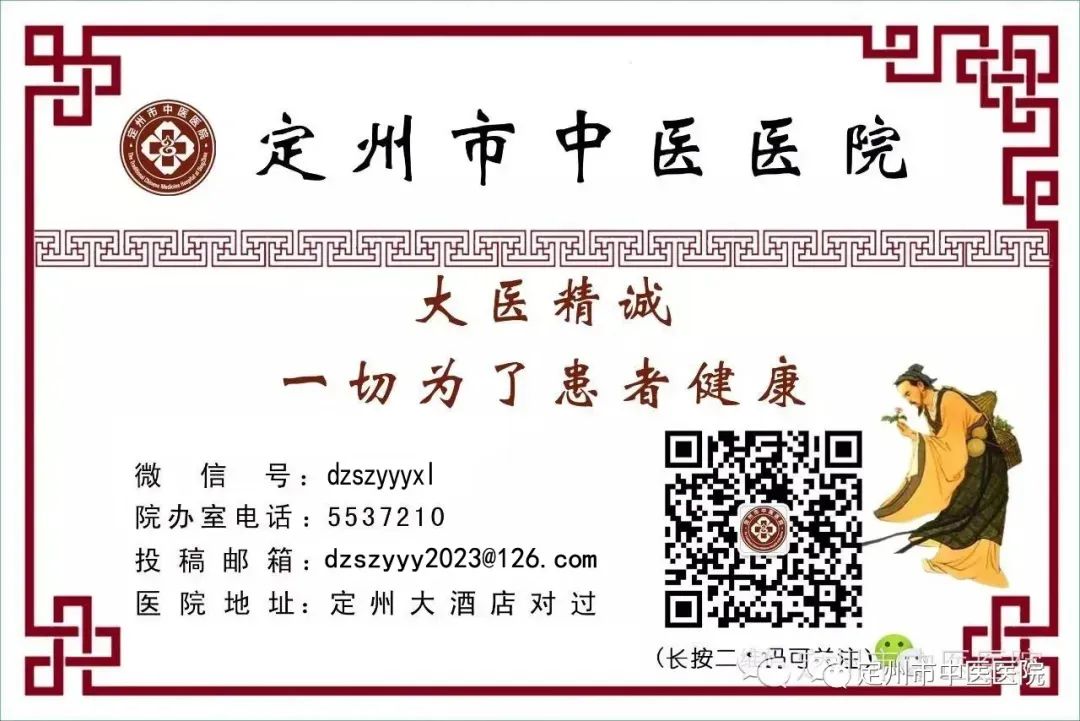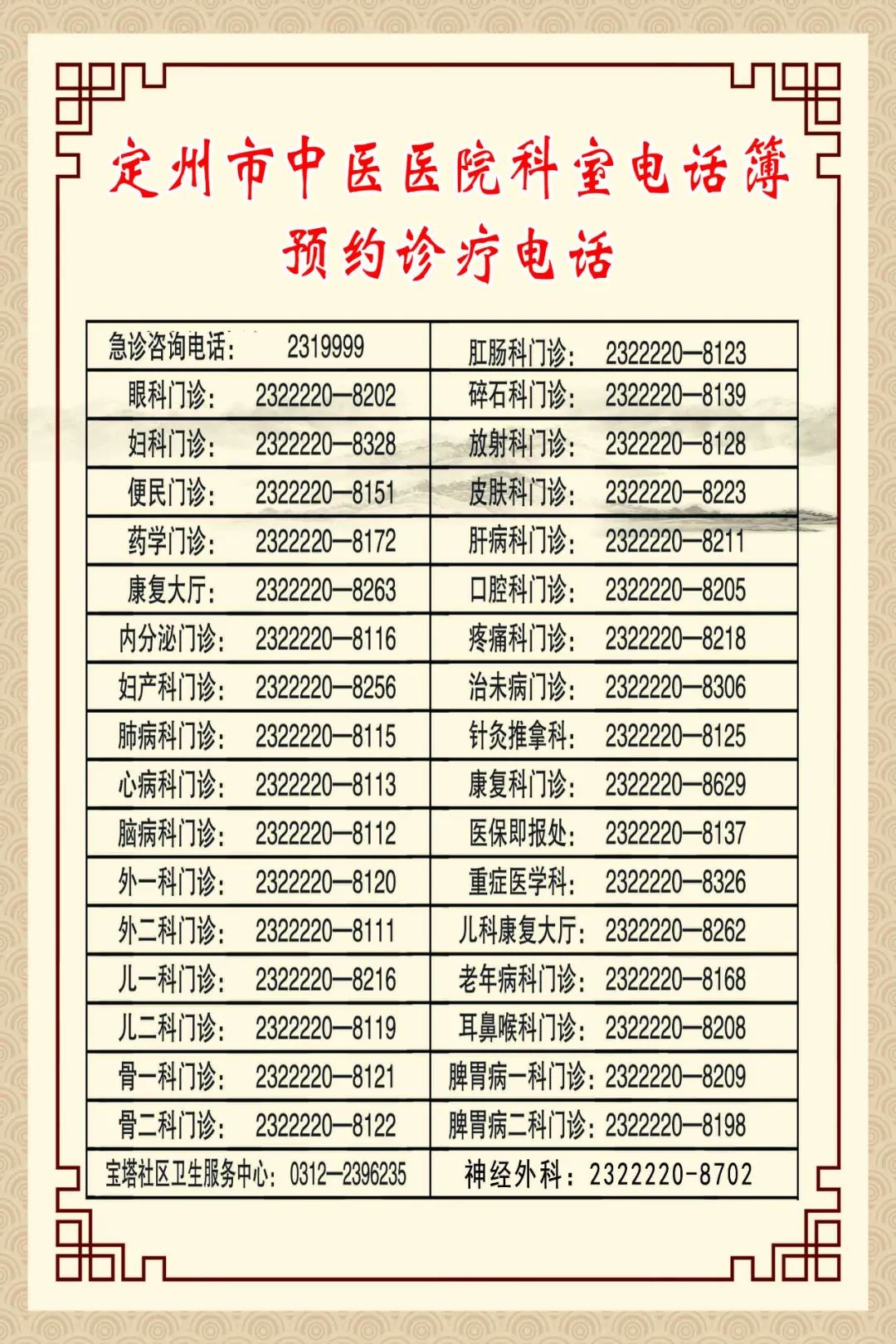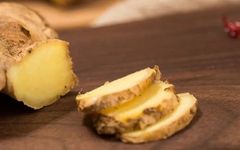
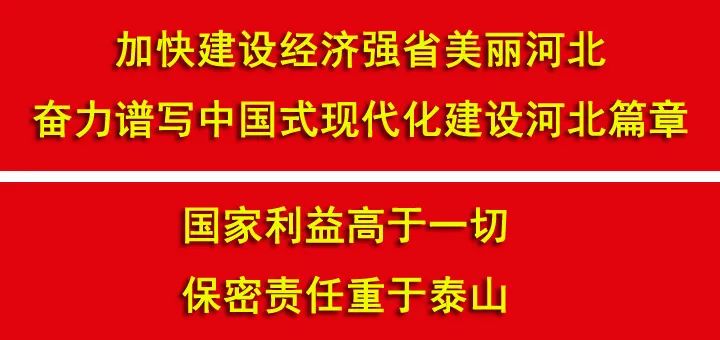
“Eating radishes in winter and ginger in summer, no need for a doctor’s prescription.” This is a widely circulated saying, and the method of using fresh ginger for health has a long history. As early as the Spring and Autumn period, the “Analects of Confucius” mentioned that “ginger should not be omitted from meals,” recording Confucius’s habit of including fresh ginger in every meal for health preservation.
As summer approaches, many people begin to “eat ginger,” but most are unclear about the specific uses of ginger: how to eat it? When to eat it? Should one use fresh ginger or dried ginger? Today, we will clarify these points.
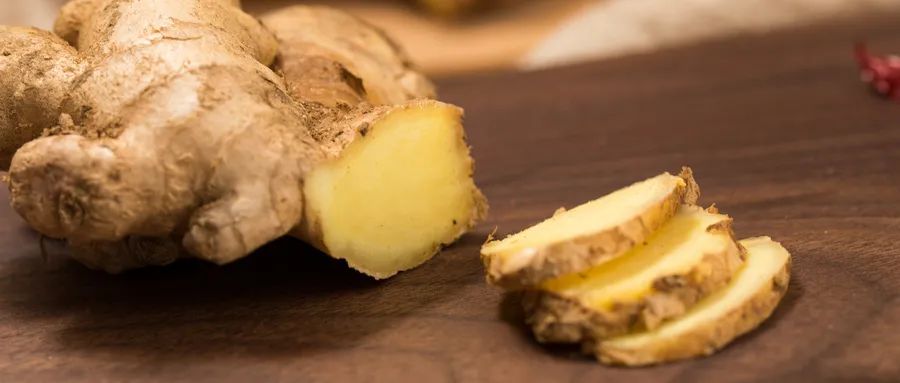
Why Eat Ginger in Summer?
Fresh ginger is pungent and warm, while radishes are sweet and cold. This seems contradictory to the understanding that summer requires cooling and winter requires warmth. However, it is not. The saying “eat radishes in winter and ginger in summer” is a principle of health preservation. This aligns perfectly with TCM principles such as “treating winter diseases in summer” and “nurturing Yang in spring and summer, nurturing Yin in autumn and winter.”
1. In summer, Yang energy is on the surface, while the interior is deficient and cold.
The “Treatise on Febrile Diseases” states: “In May, Yang energy is on the surface, and the stomach is cold and deficient. Because Yang energy is weak internally, it cannot withstand the cold, hence the need to wear more clothes; in November, Yang energy is internal, and the stomach is hot and bothered, as Yin energy is weak internally, it cannot withstand the heat, hence the desire to be bare.”
This passage indicates that during summer, represented by May, Yang energy is directed outward, while the interior, especially the stomach, is relatively cold. This is why, although summer can cause irritability and thirst due to heat, one is also intolerant of cold and prone to diarrhea.
2. Excessive desire for cold in summer leads to the accumulation of cold pathogens.
Do not underestimate the cold pathogens in summer. In hot weather, blood vessels dilate, and pores open, making it easier for cold pathogens to invade. Most people are unaware of this, focusing only on preventing heat while neglecting to guard against cold. They indulge in cold and frozen foods and spend long periods in air-conditioned rooms.
Cold pathogens thus enter our bodies and accumulate. Gradually, the Yang energy of the spleen and stomach becomes increasingly deficient, leading to symptoms such as aversion to wind and cold, fatigue, poor appetite, sticky mouth, abdominal pain, and diarrhea.
Therefore, as early as in the “Huangdi Neijing,” it was proposed that “nurturing Yang in spring and summer, nurturing Yin in autumn and winter” is essential to protect our internal Yang energy.
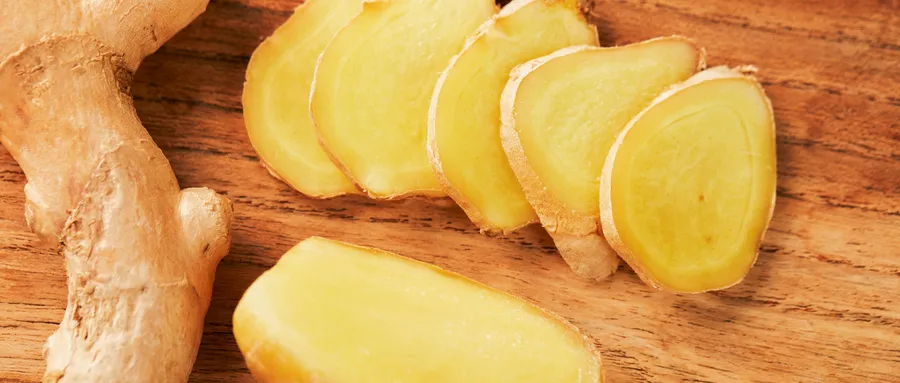
How to Choose Between Fresh Ginger and Dried Ginger?
1. Dried ginger ≠ sun-dried fresh ginger
Many friends think that dried ginger is simply sun-dried fresh ginger, but it is not that simple; the two are not merely a difference between fresh and dried.
Regarding fresh ginger and dried ginger, Li Shizhen believed that “dried ginger is made from mother ginger”; Zhang Xichun recorded in the “Medical Records of Traditional and Western Medicine” that “fresh ginger is planted in the ground, harvested in autumn, peeled, and dried to make dried ginger; the buds that grow from the ginger are planted in the ground, and the ginger produced that year is fresh ginger. Therefore, dried ginger comes from mother ginger, while fresh ginger is from young ginger, with dried ginger being older and fresh ginger being tender.”
Thus, dried ginger is not made from ordinary fresh ginger but is made from mother ginger. In other words, dried ginger comes from mother ginger, while fresh ginger comes from young ginger.
However, authentic dried ginger is rarely seen in the market today; most are fresh ginger sliced and dried or dehydrated at low temperatures.
2. What are the differences between dried ginger and fresh ginger?
Fresh Ginger: Pungent, slightly warm. It enters the Lung (Fei), Spleen (Pi), and Stomach (Wei) meridians. It releases the exterior and disperses cold, warms the middle, stops vomiting, transforms phlegm, and stops coughing. Its nature is more dispersive, commonly used for wind-cold colds, cold stomach vomiting, and cold phlegm cough.
Dried Ginger: Pungent, hot. It enters the Spleen (Pi), Stomach (Wei), Kidney (Shen), Heart (Xin), and Lung (Fei) meridians. It warms the middle, disperses cold, revives Yang, and dries dampness to transform phlegm. Its nature is more consolidating, commonly used for cold pain in the abdomen, vomiting, diarrhea, cold limbs, weak pulse, and phlegm-damp cough.
Comparing the properties and effects of the two types of ginger, we can deduce that if the commercially available ginger date tea uses dried ginger, it may easily cause heat in most people.
Fresh ginger disperses and does not hold, while warming the middle and dispersing cold, it is more suitable for the prevalence of dampness in summer.
Dried ginger holds and does not disperse; when paired with the similarly holding jujube, it is like placing a small stove in the middle burner. If one has a clear deficiency of middle Yang, drinking this ginger date tea may not cause much discomfort.
However, in the south, many people have a hot upper body and cold lower body constitution, and drinking dried ginger and jujube tea may easily lead to excess heat, failing to achieve the desired health benefits. Furthermore, in summer, with high temperatures and increased sweating, long-term consumption of the hot dried ginger to regulate the body may deplete internal Yin fluids.
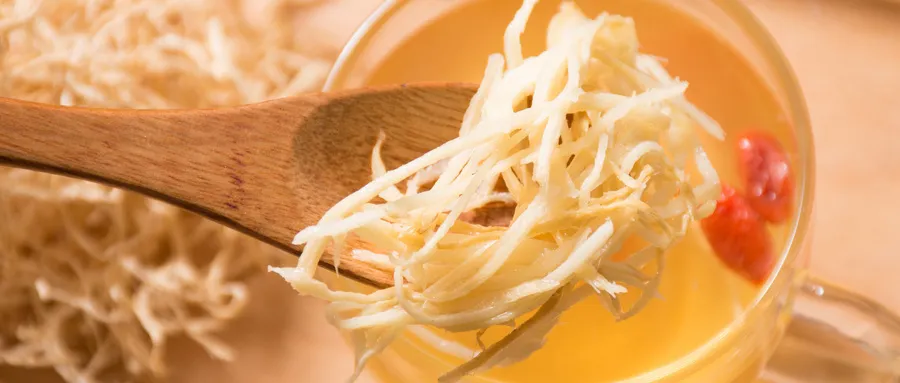
When is the Best Time to Eat Ginger?
1. Eating ginger in the morning is ideal.
Throughout the day, it is recommended to eat ginger in the morning. At this time, the Yang energy of the body is distributed on the surface, and the interior is mostly cold. Fresh ginger can warm the middle and help to raise Yang energy. In the evening, when Yang energy enters Yin, it is not advisable to consume too much ginger. Eating ginger at night can lead to excessive internal Yang, potentially causing stomach discomfort and heartburn, and can also affect sleep.
In this regard, there is a saying in the folk that “eating ginger at night is more toxic than arsenic.” This is an exaggerated statement meant to remind everyone to avoid this inappropriate time for consuming ginger. Eating ginger at night is more harmful than beneficial, but it is far from being “more toxic than arsenic.”
2. From the beginning of summer to the day before the dog days: The best time to drink ginger date tea.
It is best to drink ginger date tea from the beginning of summer until the day before the dog days, as this yields the best results in nourishing Yang and expelling turbidity. However, once the dog days arrive, it is not advisable to continue drinking it.
“Heat during the dog days” refers to the hottest time of the year. The body sweats a lot during this period, and if one continues to drink ginger date tea, fresh ginger disperses and releases the exterior, leading to even more sweating, which is not beneficial for health preservation.
2024 Dog Days Schedule:
First Dog Days: July 15 – July 24, a total of 10 days.
Second Dog Days: July 25 – August 13, a total of 20 days.
Third Dog Days: August 14 – August 23, a total of 10 days.
In the hot summer, the body’s pores are open, and internal Yang energy is deficient. Drinking a cup of ginger date tea can both replenish the deficiency of internal Yang energy to warm the middle and help Yang energy disperse to expel cold, in line with the principle of “nurturing Yang in spring and summer.”
Additionally, drinking ginger date tea is beneficial for gastrointestinal health.
Many people notice significant improvements in their gastrointestinal health after drinking ginger date tea for a period. This is because fresh ginger has antibacterial, anti-inflammatory, and detoxifying properties, which can effectively protect the gastrointestinal tract.
The “Collection of Effective Recipes” states, “Ginger tea is a simple and effective remedy for dysentery; finely chop fresh ginger, brew it as tea, and one or two cups will suffice for recovery.” Ginger date tea not only stops diarrhea but also warms the middle, disperses cold, alleviates discomfort, and makes the spleen and stomach feel more comfortable.
*Simple Recipe for Ginger Date Tea
Ingredients: 3-6 jujubes, 3-5 slices of fresh ginger.
Method:
1. Add an appropriate amount of water and boil until a light red color is achieved.
If you are cold and fear the cold, you can add a few Sichuan peppercorns to make Sichuan pepper ginger date tea, which is more effective in dispelling cold and dampness.
You can also add some honey to the ginger date tea for a good lung-moistening effect, but wait until the tea is warm before adding honey.
2. Note that do not peel the fresh ginger, and the amount of ginger should not be small; the brewed water should have a slight spiciness.
3. For the ingredients, use jujubes, as only jujubes have the effect of warming the body and dispelling cold.
Summer
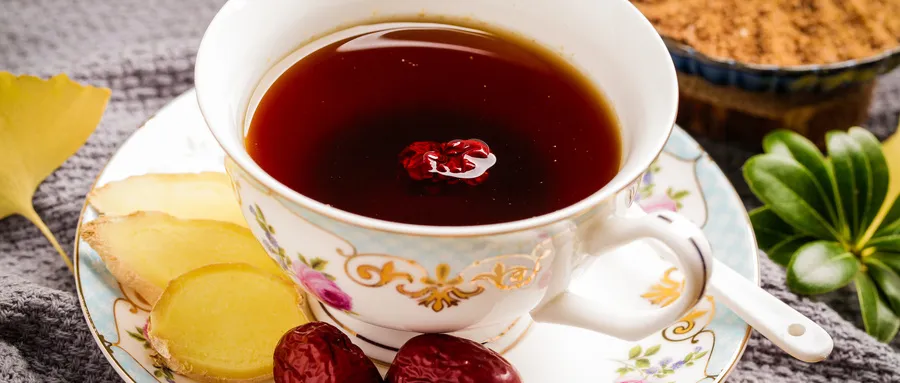
3. From the dog days to the beginning of autumn: Switch to vinegar-pickled ginger.
After the dog days, it is recommended to switch to a different way of consuming ginger, which is vinegar-pickled ginger.
By mid-dog days, autumn is approaching, and the nature of autumn is to gather and descend. The sour and astringent taste of vinegar has a consolidating effect, which aligns with the nature of autumn, and can also neutralize the dispersive nature of fresh ginger, gently warming Yang, strengthening the spleen, and dispersing cold and dampness. The acidic nature of vinegar can also replenish fluids, so vinegar-pickled ginger can generate fluids and replenish Yang without worrying about causing excess heat.
Preparation: Use 2 pounds of fresh tender ginger, add half a bottle of aged vinegar, and optionally add some rock sugar for flavor. Place in a sealed jar to marinate, avoiding light and moisture, and let it sit for one week before consumption.
Special Reminder:
Fresh ginger therapy is particularly suitable for those with a cold and damp constitution. However, those with symptoms of Yin deficiency heat, such as red lips, dry mouth, and five-center heat, or those with damp-heat manifestations in the spleen and stomach, such as unsatisfactory bowel movements and foul-smelling stools, should not consume it. Patients with liver disease, diabetes, and acute inflammation should also avoid it.
Source:Common People’s Medical Book
Editor: Liu Jiale
Reviewed by: Xu Liang


